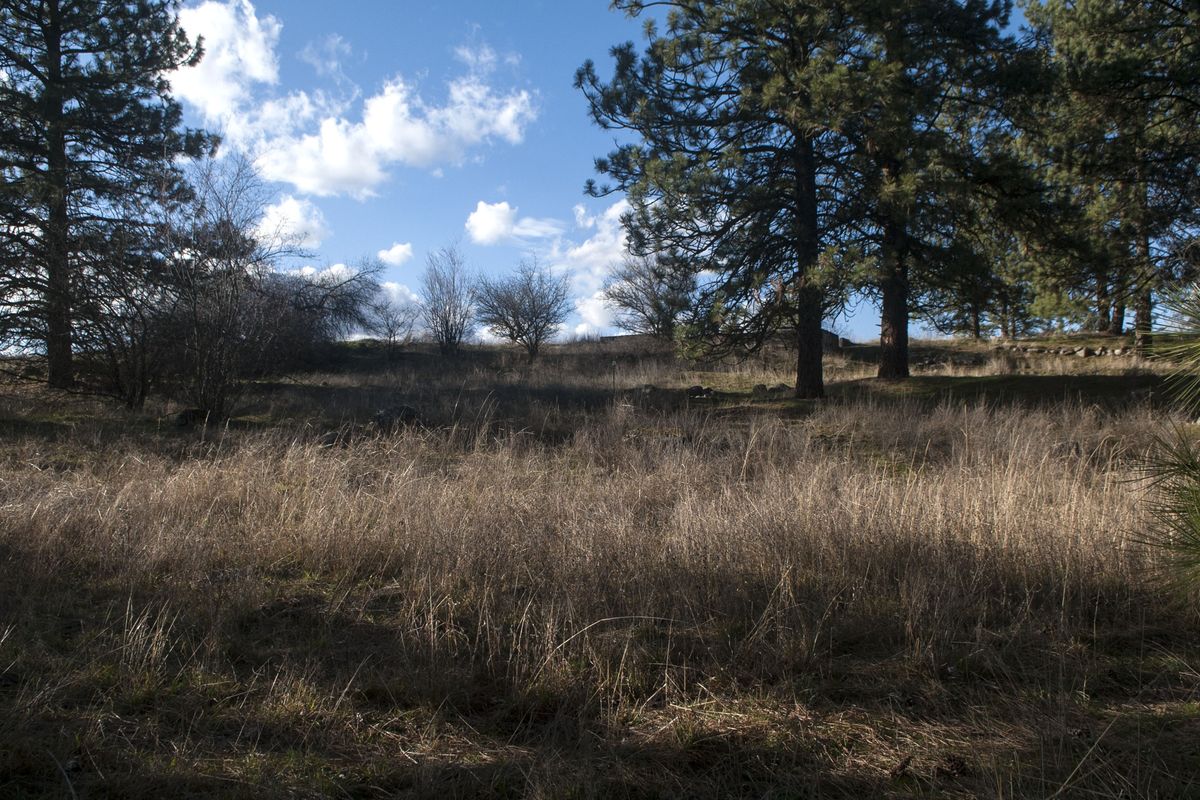Spokane Valley City Council votes to pursue purchase of 45-acre property for new park

After a six-month wait over concerns about the city’s finances, the Spokane Valley City Council voted to pursue purchasing a 45-acre undeveloped property next to the Spokane River to use as a park.
The $2.1 million property near the intersection of Flora Road and Euclid Avenue is owned by the Washington State Department of Transportation. The land was once used as a gravel pit and as a place where animals killed on state highways were dumped. City leaders hope to turn the land, which is mostly undeveloped, into the city’s newest park.
The purchase would increase the city’s parkland by about 20%, growing from about 250 acres to around 300 acres
The land the city hopes to purchase is adjacent to Washington State Department of Parks and Recreation land along the river. City leaders hope to set up an agreement to allow the public access to that land as well for recreation.
On Tuesday, Mayor Ben Wick and council members Brandi Peetz, Linda Thompson and Tim Hattenburg voted to ask city staff to bring forward a motion to purchase the property, overruling council members Rod Higgins, Arne Woodard and Pam Haley, who said they wanted to wait until the end of the year for more information on how the city’s budget would be impacted by the pandemic.
The City Council first discussed purchasing the land from the state in March, but asked the state transportation department to hold off on selling the property until they had more information about how the pandemic would impact the city’s finances. The state had surplussed the property and, under state law, is required to offer it first to the city before they open the sale up to other buyers. City officials said at the time that a developer and another gravel pit operator were interested in the land.
Wick said the situation reminded him of when the City Council passed on purchasing on the Painted Hills Golf Course in 2013. The golf course was for sale due to the owner’s bankruptcy. Wick was a member of the council then, but recused himself because he was related to the general manager of Water District 3, which was owed money by the property owners.
The golf course, around 90 acres, was bought by a developer instead.
Wick said that land will likely never be a park, and said much of the other available land in Spokane Valley already has been turned into developments.
“Having lived through a few opportunities that have been missed, I didn’t want to miss this one,” he said.
Wick said the city has money outside of its general budget set aside from past years that it could use to buy the land and has applied for a $1 million grant, which the city could retroactively use to cover half the costs. The city will know how high it ranked in the selection process in the next few weeks, but won’t know if they will be awarded funds until the 2021 legislation session. Wick said the revenue sources impacted by the pandemic, such as sales tax, wouldn’t be used in the purchase, so he did not see a reason to put off the purchase.
“I don’t think there’s going to be a whole lot of difference between now and December,” Wick said.
Woodard, who voted against moving forward, said he wants to buy the land for a park, but said it was “not a good look” for the council to be making large non-essential purchases during a pandemic. He said he also doesn’t think it was a good idea to move forward without knowing how the city ranked in the grant process.
“I think it’s poor image to not really consider the timing of when we’re doing this,” he said. “Waiting three months, I don’t see a problem with that.”
Woodard said otherwise he supports a new park because the lnd and the river access could be a way to connect the city’s park system through trails and access points.
Thompson said she hopes the purchase will give residents something positive to look forward to during a difficult time for the community.
“I think it gives people hope that we are preparing for the future, that we have confidence that we are going to be OK,” she said.
She said she knew if the city didn’t buy it, someone else would and that public access point to the river could be lost. She said purchasing it was an investment for future generations.
Neither Wick or Woodard had specific ideas yet, noting that the development of the park would be primarily up to the the public using a master-plan process, which would rely on feedback from the public.
During the city’s last master-plan process, citizens said they wanted more parkland and amenities.
While the City Council voted to move forward with the purchasing process, they likely won’t officially vote to buy the property until Oct. 6, when city staff brings a formal motion before the council and people have an opportunity to comment on the project.